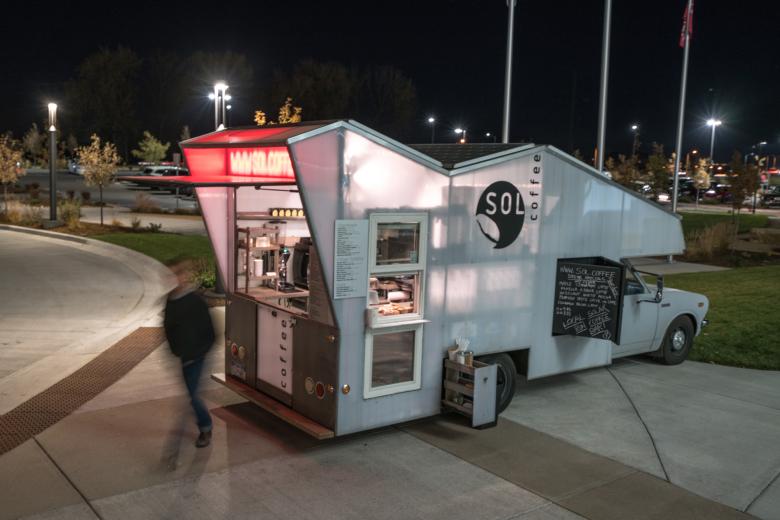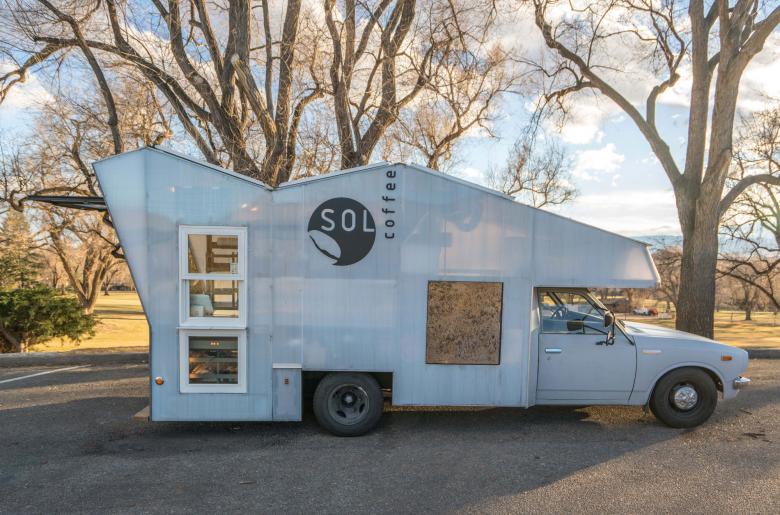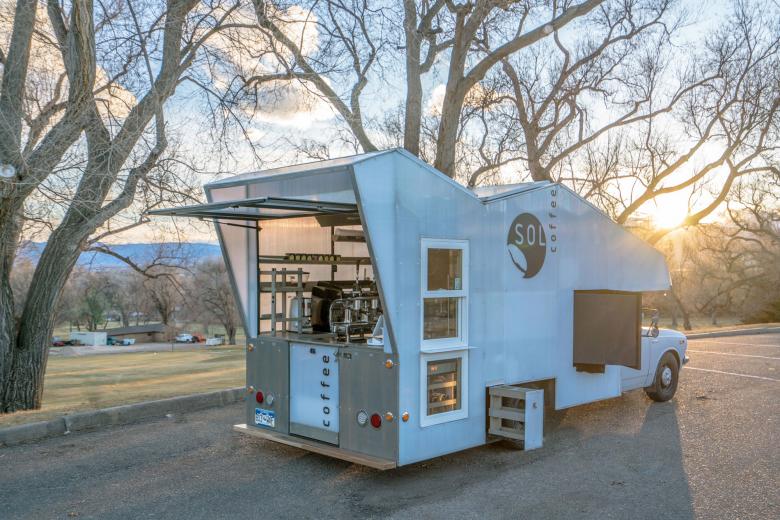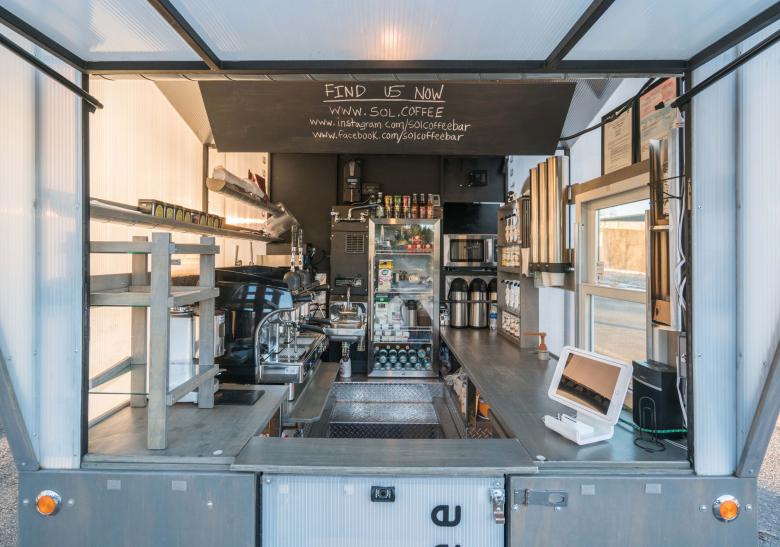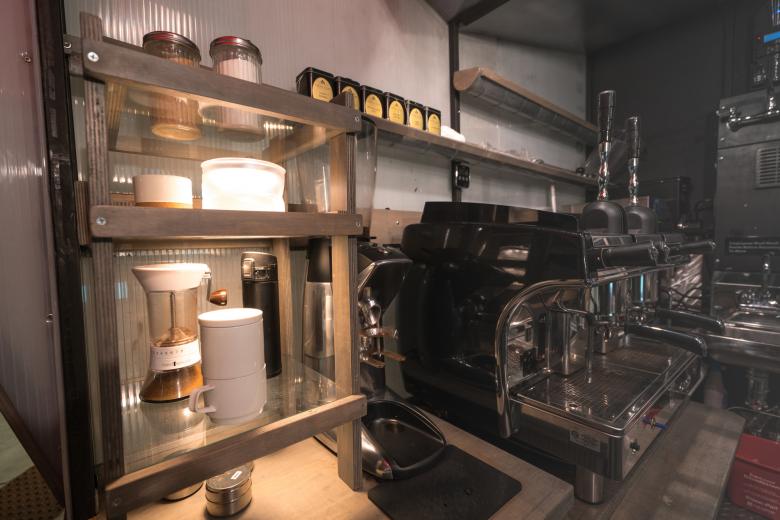U.S. Building of the Week
Sol Coffee Mobile Espresso Bar
Hyperlocal Workshop
21. januari 2019
Photo: Andrew Michler
The food truck boom continues: Food Truck Nation contends it is a $2 billion industry in the US, while Denver, Colorado, has nearly 600 food trucks -- one for every 1,200 residents. The Sol Coffee Mobile Espresso Bar in nearby Longmont addresses one aspect of food trucks lost in the hype: the fuel needed to run them. Powered by solar panels, the mobile coffee bar is a striking alternative to the norm. Andrew Michler at Hyperlocal Workshop answered a few questions about the project.
Location: Longmont, Colorado, USA
Architect: Hyperlocal Workshop
Design Principal: Andrew Michler
Project Team: Frank Stanley, Darren Wurtzburg
Built Area: 115 sf
See below for important products/manufacturers.
Photo: Andrew Michler
What were the circumstances of receiving the commission for this project?
The project was a response to creating a mobile alternative to a brick and mortar coffee shop. The brief for the project was to function with the production of a mid-sized shop, maintain autonomy via solar energy when in the field, and to be flexible in how it can serve guests in a variety of locations. The project was designed and built by its owners.
Please provide an overview of the project.
Sol Coffee is a mobile espresso bar which is primarily solar powered. The design intent is to provide a bright, open, and quite environment for clients to have an intimate experience in the making of espresso based drinks.
Photo: Andrew Michler
What are the main ideas and inspirations influencing the design?
The project is an experiment in challenging the mobile food service industry by bringing the values of 3rd wave coffee into a new context. The majority of mobile food trucks are out of scale to the patron and server and rely on highly polluting generators for their operation. By incorporating a solar system for equipment energy loads, the surrounding environment is clean and quite enough to fully savor a beverage and light foods.
How does the design respond to the unique qualities of the site?
The intent is to mobilize space-making through the activation of architecture and pay homage to the Rocky Mountains where it is located. The translucent skin provides visual volume and activates at night. The floor of the service space is lowered to improve contact between patron and barista. A small protected bar entices patrons to engage with the craft of making an espresso beverage. They can smell the coffee grinding and see the manual espresso machine pull a shot.
Photo: Andrew Michler
Was the project influenced by any trends in energy-conservation, construction, or design?
The production of espresso is energy intensive so the project is a technical balance between solar energy production, battery storage and energy consumption. The three 345-watt solar panels where procured first to inform the width of the construction. The articulated roof provides various solar exposures to maximize output in any orientation. All the equipment except the espresso machine and water heater run from a battery and inverter. To reduce weight the polycarbonate panel that skins the envelope was built with lightweight steel tubing.
Photo: Andrew Michler
What products or materials have contributed to the success of the completed project?
The heart of the operation is a duel fuel manual espresso machine which can run on propane, electricity or both depending on energy resources and production needs. A hybrid inverter can both charge the batteries and provide energy at the same time allowing a very small generator to be used if needed.
Email interview conducted by John Hill.
Photo: Andrew Michler
- 1979 Toyota Dolphin Camper
- Polycarbonate Panel
- Astoria Duel Fuel Lever Espresso Machine
- Magnum Energy MSH4024 Inverter
- Noritz NRC661 Condensing On Demand Water Heater
Gerelateerde artikelen
-
Spotlight on Italy
on 16-05-2018
-
Bologna Shoah Memorial
on 20-07-2015
